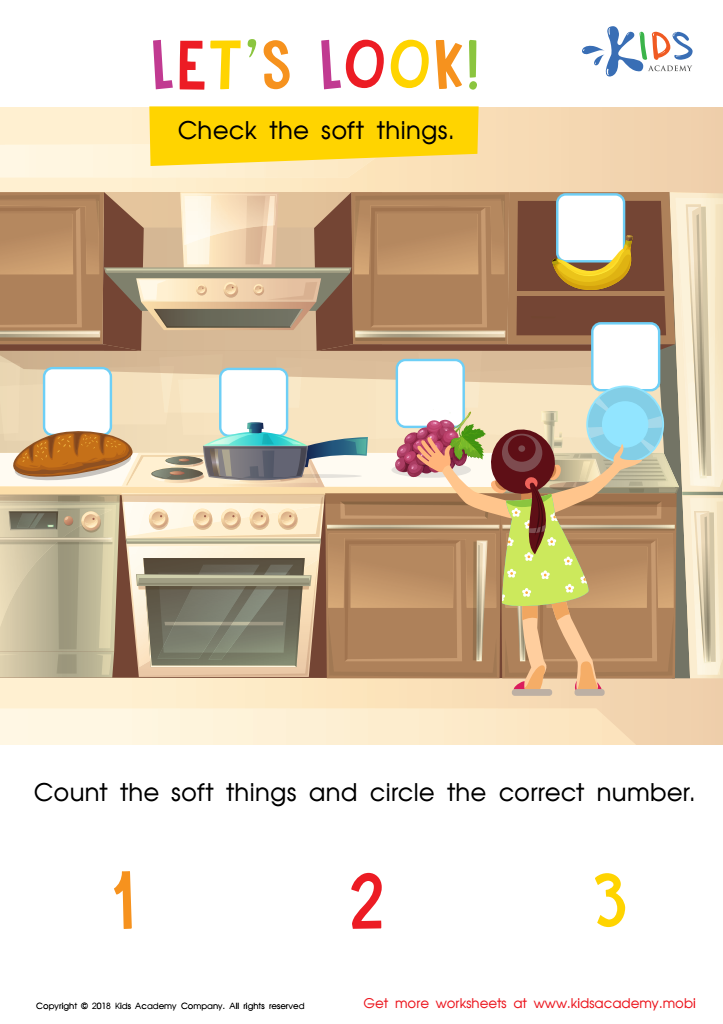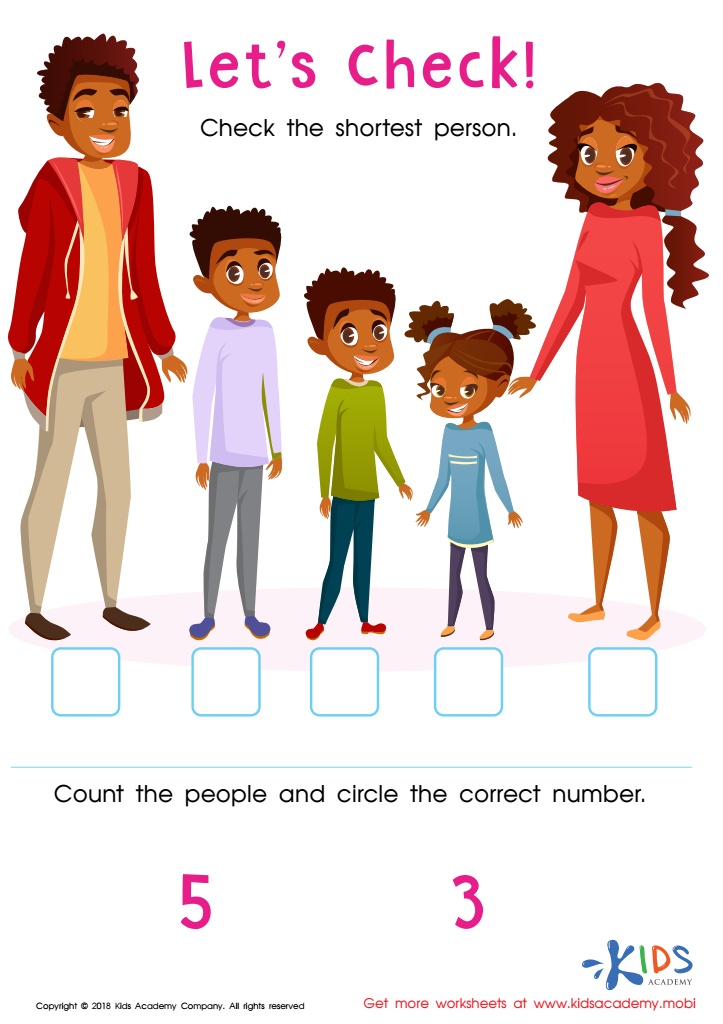Counting skills Normal World Around Us Worksheets for Ages 4-8
3 filtered results
-
From - To
Unlock the magic of counting with our "Counting Skills Normal World Around Us Worksheets for Ages 4-8"! These meticulously designed worksheets help young learners explore numbers through everyday situations, fostering a deep connection between math and the real world. Perfect for children ages 4 to 8, each worksheet seamlessly integrates counting exercises with engaging illustrations to create an enjoyable learning experience. Children will develop essential math skills, such as counting objects, identifying numbers, and simple addition, all while discovering the world around them. Enhance your child’s numeric abilities with our interactive and fun counting worksheets!


African Wildlife: Giraffe Worksheet


Let's Look! Assessment Worksheet


Let's Check! Assessment Worksheet
Counting skills are foundational to a child's early mathematical development and have broad implications for their understanding of the world around them. For children aged 4-8, mastering basic counting skills enhances their cognitive development, spatial understanding, and logical reasoning. When parents and teachers emphasize counting in everyday activities, they pave the way for children to grasp more complex mathematical concepts later on.
Firstly, counting helps children develop number sense, which is the ability to comprehend quantities and their relationships. This foundational skill is crucial for more advanced arithmetic operations like addition, subtraction, multiplication, and division. By engaging in counting, children learn one-to-one correspondence, numerical order, and the concept of more or less, which are essential for problem-solving.
Furthermore, counting is not just a mathematical skill but a gateway to understanding the structured nature of the world. It allows children to organize and make sense of their environment. For example, counting their toys or steps helps them strengthen their observation and memory skills. This practical application of counting in the real world fosters a sense of curiosity and excitement about learning.
Overall, proficient counting skills set the stage for academic success not only in mathematics but across various disciplines, enhancing a child's overall educational experience. Therefore, parents and teachers should actively nurture this skill through playful, everyday interactions and structured learning activities.
 Assign to My Students
Assign to My Students
















